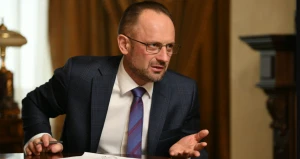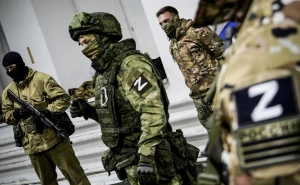
Lukashenko accidentally exposes Russia’s Oreshnik bluff
Russia’s 'Oreshnik' operation was a propaganda stunt to exaggerate its military power and intimidate the West, but it faltered due to poor coordination and inflated claims
The author of the Resurgam Telegram channel discussed the issue.
In early December, The Moscow Times published an article titled "Kremlin stages Oreshnik propaganda blitz as nuclear threats lose their potency." The outlet reported that four state officials confirmed the operation was a carefully crafted information campaign. According to them, brainstorming sessions focused on countering Western support for Ukraine, particularly strikes allowed by the UK and U.S., and intimidating European countries like Germany.
The campaign was a classic example of military propaganda designed to exaggerate the capabilities of Russia's military-industrial complex. A Kremlin official revealed that the operation unfolded in stages, including the missile strike dubbed Oreshnik, viral footage on social media, and targeted coverage in foreign media.
Key participants included Russian Foreign Ministry spokesperson Maria Zakharova and Kremlin media overseer Alexei Gromov, with Gromov allegedly calling Zakharova mid-briefing with foreign journalists in what insiders termed an intentional "Easter egg" of the operation. The climax came when Putin himself promoted the missile’s capabilities during a CSTO summit, aiming to bolster his image domestically and justify his inability to enforce "red lines."
Putin's narrative shifted, claiming that the new missile system made nuclear threats less relevant. He sidestepped questions about Russia's nuclear doctrine, suggesting the missiles alone served as a deterrent.
The operation, however, fell short of its intended propaganda impact, prompting an extension. Belarusian leader Alexander Lukashenko joined the campaign, announcing plans to host Oreshnik systems in Belarus, with Russian state media pushing claims of producing "25 missiles per month." Yet, Lukashenko appeared uninformed, awkwardly suggesting placing ten missiles in Belarus—a feasible task if Russia’s production claims were true. Putin avoided committing, further undermining the narrative.
This misstep highlighted inconsistencies in the propaganda effort. Lukashenko’s lack of coordination and reliance on inflated production figures placed Putin in a precarious position, exposing the campaign’s theatrical nature. The incident illustrates the fragility of Moscow’s attempts to project strength while sowing doubt about its actual capabilities.
- News













































